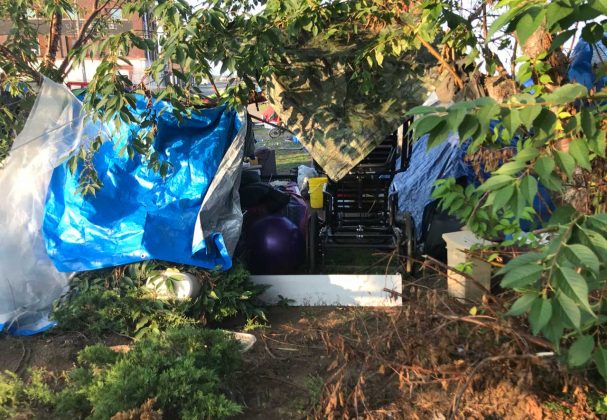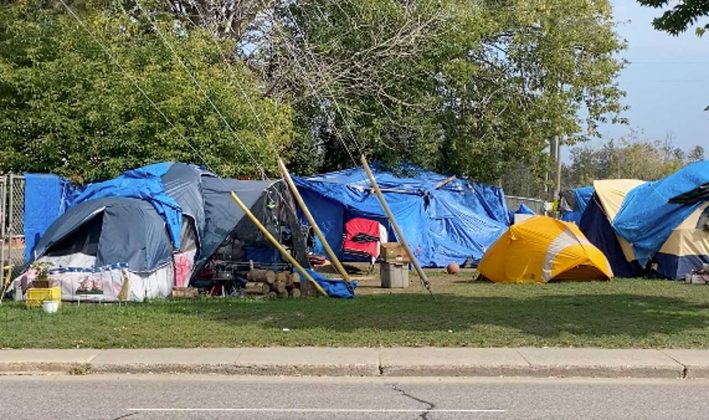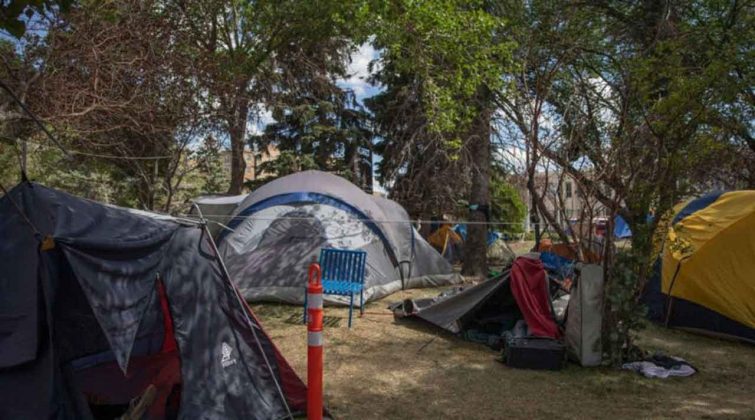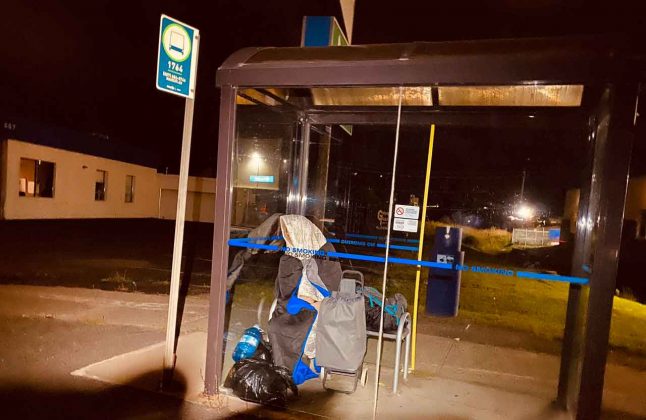Federal Housing Advocate Proposes Comprehensive Response Plan to Tackle Encampment Challenges
THUNDER BAY – NEWS – Federal Housing Advocate Marie-Josée Houle has issued a stark warning and a call for a national action plan to address the dire human rights situation facing individuals living in homeless encampments across Canada.
Highlighting the severe risks to the health and safety of encampment residents, Houle’s message underscores the urgent need for comprehensive solutions to this escalating crisis.
Living conditions in encampments are far from safe or sustainable, with residents facing daily life-and-death situations. The lack of access to essential services such as clean water, food, sanitation, heating, cooling, healthcare, and harm reduction services points to a significant governmental failure in providing for the basic necessities of life.
The existence of these encampments signals a broader systemic issue – a failure to uphold the right to adequate housing. This crisis stems from an acute shortage of affordable housing and support services, leaving an increasing number of individuals with no option but to live in makeshift shelters.
In her groundbreaking final report on the issue, Houle calls on the federal government to develop a National Encampments Response Plan by August 31, 2024. This plan demands immediate and concerted efforts from all levels of government to:
- Provide immediate life-saving support to encampment residents, ensuring access to basic necessities for survival and dignity.
- Cease forced evictions of encampments, offering alternative solutions developed through genuine engagement with the residents.
- Foster collaboration among federal, provincial, territorial, and municipal governments, offering support to local municipalities.
- Honor the inherent rights of Indigenous Peoples.
- Uphold human rights, including the right to adequate housing, ensuring rapid access to permanent housing solutions.
- Address the root causes leading to the formation of encampments.
The report meticulously outlines the factors contributing to the rise of encampments and specifies actionable measures for governments to fulfill their human rights obligations, aiming to reduce or eliminate the need for such living conditions. It calls for a unified effort from the federal to municipal levels, emphasizing the critical lack of political will, resources, and coordination required to resolve this crisis effectively.
This national emergency demands an immediate and robust response to uphold the dignity and rights of encampment residents. The release of this report marks a historic moment in the advancement of the human right to housing in Canada, serving as an urgent plea for action to all levels of government to address and prevent the human rights crisis in homeless encampments.

Thunder Bay Focus on Solving Homelessness
While the overall situation is being reported as very few winter encampments in the city, the reality is that many people simply are remaining outdoors, braving the winter with nights where finding shelter include the foyers of banks, staying up and walking around all night, sleeping in parkades or couch surfing.
Thunder Bay faces a critical moment in its approach to homelessness, reflecting a broader national crisis but with unique local challenges. The city, known for its strong community spirit and resilience, is now at a crossroads, needing to address the complex issue of homelessness with compassion, innovation, and urgency.
The Current Situation
Homelessness in Thunder Bay is not just a statistic; it’s a visible, pressing reality affecting individuals and families, with tent encampments becoming more common. These encampments are a stark reminder of the city’s housing crisis, underscoring the need for immediate action.
The situation mirrors the national crisis highlighted by Federal Housing Advocate Marie-Josée Houle’s call for a comprehensive response to the human rights crisis facing those in homeless encampments.
However, Thunder Bay’s response must be tailored to its unique demographic, geographic, and socio-economic context.
Local Challenges and Opportunities
Thunder Bay’s struggle with homelessness is exacerbated by several factors, including a lack of affordable housing, mental health and addiction issues, and a significant Indigenous population facing systemic barriers.
The city’s geographical location, far from Ontario’s major urban centers, also means that solutions effective in other parts of Canada may not be directly applicable here.
However, these challenges also present opportunities for innovative, community-driven solutions. Thunder Bay can leverage its close-knit community networks, local organizations, and Indigenous leadership to develop targeted strategies that address the root causes of homelessness.
A Call for Action
The first step is recognizing that homelessness is not just a housing issue but a complex problem requiring multi-faceted solutions. Thunder Bay needs a comprehensive strategy that includes:
- Increasing Affordable Housing: This is a fundamental need. The city must work with developers, non-profits, and government agencies to increase the supply of affordable and supportive housing units.
- Enhanced Support Services: Addressing mental health, addiction, and trauma is crucial. Expanding access to health and social services, tailored to the needs of the homeless population, can provide the support necessary for individuals to transition out of homelessness.
- Indigenous-Led Solutions: Indigenous peoples are disproportionately affected by homelessness in Thunder Bay. Indigenous-led initiatives, grounded in cultural understanding and respect, are essential to developing effective solutions. Many Indigenous people remember the Friendship Centre opening at night offering a warm place.
- Community Engagement: Raising awareness and involving the community in addressing homelessness can foster a supportive environment for those affected. Volunteer initiatives, advocacy, and support for local organizations play a crucial role.
Moving Forward
Thunder Bay has the opportunity to lead by example, showing how a community can come together to address homelessness with empathy, respect, and innovation. By focusing on local solutions while aligning with national strategies, Thunder Bay can make significant strides in addressing this crisis. It requires a concerted effort from all sectors of the community—government, business, non-profits, Indigenous groups, and citizens—to create a Thunder Bay where everyone has a place to call home.
This is not just a matter of policy; it’s a testament to the city’s values and its commitment to ensuring the well-being of all its residents. Let’s make Thunder Bay a model of compassion and action in the fight against homelessness.













